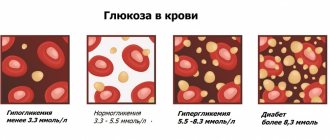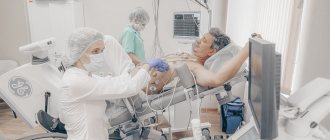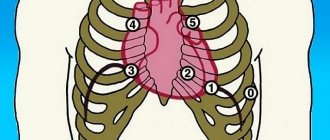Main indications for an ECG
Traditionally, ECG diagnosis is carried out:
- to record the electrical activity of the heart muscle;
- searching for the causes of unexplained pain in the chest area;
- Diagnose heart disease if symptoms are present (eg, dizziness, irregular or rapid heartbeat, fainting, difficulty breathing);
- Identifying side effects of taking medications, assessing the degree of their impact on heart health;
- checking the operation of implants (pacemakers, etc.);
- diagnostics of heart health (if there are signs and risk factors for the development of pathologies - hereditary predisposition, smoking, diabetes, high cholesterol, blood pressure, etc.);
- assessment of heart function (ECG of pregnant women) with increasing load on the body.
Frequency of the study
During an ECG, sensors attached to the chest do not have any effect on the body. Their only task is to capture and transmit cardiac impulses. That is why an ECG cannot harm a person, even if the study is carried out daily.
Doctors consider the following frequency of ECG to be justified:
- Healthy population under 40 years of age . For such people, one study per year is enough.
- People with chronic illnesses . For patients suffering from cardiovascular diseases, an ECG schedule is prescribed by the attending physician. It is generally recommended that the survey be conducted quarterly.
- Workers associated with risk . Doctors advise people whose profession is associated with risk (for example, the Ministry of Emergency Situations) to undergo examination every six months.
- People who have crossed the 40-year mark . This population needs cardiac testing every 3-6 months. The frequency of an ECG depends on the state of health and is determined solely by the doctor.
An ECG is mandatory for pregnant women. Expectant mothers experience hormonal changes. These disturbances affect the blood circulation process. Therefore, the ECG cannot be ignored. The frequency of the study depends only on the woman’s condition and the course of pregnancy.
Preparing for an ECG
On the day of the ECG diagnosis, you need to get a good night's sleep. It is not advisable to perform any physical exercise (exercise, jogging, etc.). If the ECG at the clinic is scheduled for early morning, then you need to avoid a heavy breakfast. During the day procedure, you should limit yourself to a light snack 2 hours before the start of the session.
It is important to avoid tea, coffee, energy and other drinks on the day of electrocardiography, as they stimulate the activity of the heart, as a result of which the results may be distorted. The use of medications that have a vasoconstrictor effect (including some eye drops, cold remedies, etc.) is excluded. Smoking is strictly prohibited 2 hours before the cardiac ECG.
You should not apply various care products (lotions, creams) to your body, as their components form a greasy film on the surface, which in turn negatively affects the contact of the electrodes with the skin.
In what cases is an ECG prescribed?
A routine examination is indicated for all patients admitted to the hospital department. Unscheduled and emergency electrocardiography is carried out in case of development or suspicion of myocardial damage of any nature (toxic, inflammatory, ischemic).
Direct indications for an ECG are:
- metabolic syndrome;
- heartbeat instability;
- chronic diseases of the cardiovascular system;
- circulatory disorders;
- changes in myocardial structure;
- endocrine diseases;
- rheumatism;
- monitoring the operation of the pacemaker;
- chronic respiratory pathologies;
- preparation for surgery.
Medical indications for an ECG are:
- periodic pain in the chest, back, neck;
- shortness of breath and difficulty breathing both at rest and after physical exertion;
- high blood pressure;
- swelling of the lower extremities, constant weakness, fainting;
- previous stroke/myocardial infarction;
- age over 40 years (annually).
Pregnant women undergo electrocardiography upon registration, as well as in the presence of alarming symptoms (fainting, dizziness, changes in blood pressure).
An ECG is sometimes recommended in the following situations:
- medical examination (admission to kindergarten, school, secondary and higher educational institutions);
- preventive examination;
- before the driver's license test;
- issuing a certificate for visiting the pool and practicing active sports;
- registration for sanatorium treatment.
The procedure has no contraindications, except for patients with chest deformation, purulent wounds and inflammatory diseases of the skin in the thoracic area.
Carrying out an ECG
Electrocardiography can be carried out as part of a comprehensive therapeutic or cardiological examination or be an independent diagnostic procedure. Modern equipment allows you to conduct an affordable ECG in the clinic and at home.
During electrocardiography, the person is in a horizontal position. Special electrodes are attached to the legs, arms and chest. They connect to the ECG machine, the doctor checks all the settings and starts the process. Analysis of cardiac muscle activity is displayed on a paper electrocardiography tape.
During the diagnosis, you should lie still and maintain a natural breathing rhythm. Sometimes during the ECG procedure, the doctor will ask you to hold your breath. The whole process takes about 5-10 minutes and is absolutely painless and safe. There are currently no contraindications for its implementation.
Registration and interpretation of ECG
The doctor diagnoses organic and functional changes in the heart by looking at ECG data transferred to paper. The cardiologist analyzes the elements of the cardiogram: leads, waves, segments, intervals and their deviations from the norm.
The main indicator of the ECG is the heart rhythm. The heart rate of a healthy person is 60-80 beats per minute. Deviations from the norm to a lesser extent are diagnosed as bradycardia (this indicator also occurs in athletes); to a greater extent – tachycardia (occurs during physical activity, emotional experiences).
ECG is a universal test that helps diagnose diseases such as chronic heart failure, myocarditis, myocardiosclerosis, myocardial dystrophy, myocardial infarction, and the presence of post-infarction scars. It is worth highlighting the most common problem today - left ventricular hypertrophy; Using an ECG, the problem can be tracked and treatment can be started on time, whereas if not diagnosed on time, the disease often leads to the sudden death of the patient.
Types of ECG of the heart
There are several types of ECG of the heart muscle. They allow the patient’s health to be assessed as objectively as possible under different conditions.
The classic electrocardiography procedure described above is carried out over a short period of time and helps to assess the condition of the organ at the time of the procedure. However, a number of heart problems manifest themselves only during certain human conditions - eating, physical activity or sleep, and therefore it is very difficult to record an attack in a clinic at a doctor’s appointment. In order to solve the above problems, it is necessary to do special types of electrocardiography.
Holter ECG monitoring . Today, continuous Holter ECG is common, providing continuous recording of the work of the heart muscle for 24-72 hours. It is also called 24-hour electrocardiography. Now there are even devices that are implanted under the skin (in the area of the heart) and provide continuous recording for 1 year.
Another type of 24-hour electrocardiography is intermittent ECG monitoring. It is used when symptoms of cardiac muscle dysfunction do not appear very often. It does not have to be done in a clinic. The device for such measurements is portable and can, if necessary, be worn on the wrist like a watch. The back panel of the device is equipped with small metal disks that work on the principle of electrodes. When symptoms of cardiac pathologies appear, you need to press a button on the device and data recording will begin.
Stress ECG . In some cases, patients need to have a stress ECG. During it, a person performs physical exercises: running on a treadmill, etc. The results of such electrocardiography are compared with the data obtained after the corresponding procedure at rest. This allows for the most effective assessment of heart function.
It is important to know that in some cases, stress electrocardiography is contraindicated. It is imperative to inform your doctor about high blood pressure, angina pectoris, arrhythmia, heart and lung diseases, suspected heart attack, etc.
Electrocardiogram: the essence of the study.
An electrocardiogram (ECG) is a common and very informative test that is used to assess the condition of the heart.
The electrocardiogram is recorded on a special tape, while sensors are attached to certain places on the body, picking up electrical impulses and reflecting them in the form of jagged lines fixed on the tape. Any deviations in the ECG pattern must be interpreted by a cardiologist and functionalist; any medical specialists, especially emergency doctors, must be able to read the ECG in acute conditions.
Unlike an ultrasound examination of the heart, an electrocardiogram will not show structural or morphological changes and their shape, but will allow you to find out the following points:
- heart rate and rhythm;
- myocardial thickness;
- electrolyte disturbances in the blood (changes in potassium and magnesium levels);
- circulatory disorders in the heart muscle;
- correct operation of the pacemaker.
Thus, an ECG allows one to suspect or serves as a clear diagnostic confirmation of many heart diseases, including heart attack, arrhythmia, tachycardia, blockades, myocardial problems, coronary artery disease, myocarditis and many others.
Decoding
ECG interpretation allows you to assess the regularity of the heart rhythm (normal, too fast, too slow, irregular), as well as the general condition of the heart muscle, the presence of certain pathological processes (cardiomyopathy, myocardial infarction, pericarditis). Interpretation of data obtained from cardiac electrocardiography is a rather complex process. The decoding must be carried out by a highly qualified specialist who can accurately determine the nuances of each graph.
Our clinic offers you an ECG of the heart muscle in Moscow. Competent doctors will professionally and accurately interpret the data obtained and present the results in an accessible manner. Call us on the phone in Moscow + 7 (495) 223-38-83 . The clinic’s consultants will tell you in detail about the ECG, the price, and will also sign you up for the procedure.
Our clinics in St. Petersburg
Structural subdivision of Polikarpov Alley Polikarpov 6k2 Primorsky district
- Pionerskaya
- Specific
- Commandant's
Structural subdivision of Zhukov Marshal Zhukov Ave. 28k2 Kirovsky district
- Avtovo
- Avenue of Veterans
- Leninsky Prospekt
Structural subdivision Devyatkino Okhtinskaya alley 18 Vsevolozhsk district
- Devyatkino
- Civil Prospect
- Academic
For detailed information and to make an appointment, you can call +7 (812) 640-55-25
Make an appointment









